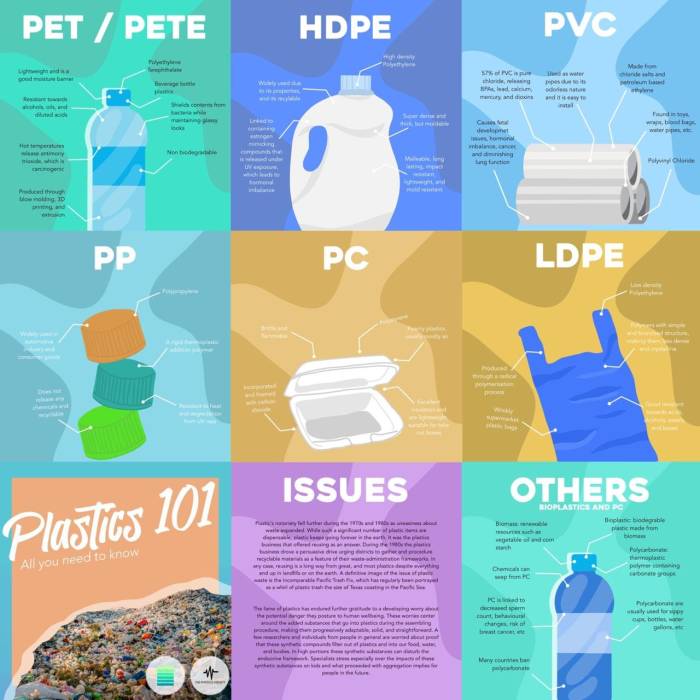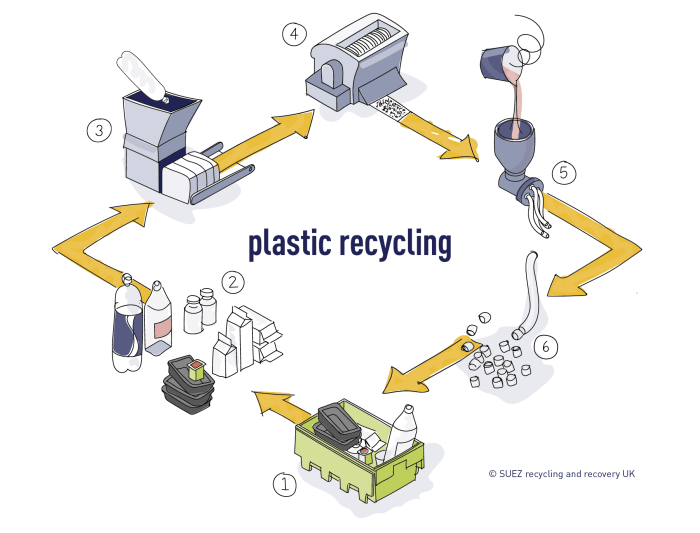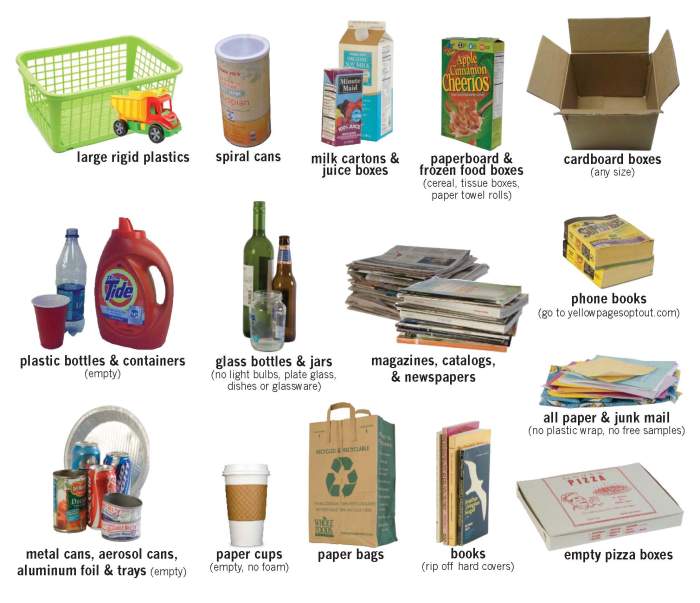Embark on a journey of discovery with The Complete Guide to Recycling Plastics: 101 Things You Need to Know, diving into the world of plastic recycling with insightful details and practical tips.
Learn about the importance of recycling plastics, the process of proper recycling, innovative uses of recycled plastics, and more.
Overview of Recycling Plastics

Plastics are widely used in our daily lives, from packaging materials to household items and beyond. Recycling plastics is crucial for several reasons, including reducing waste in landfills, conserving natural resources, and minimizing pollution. By recycling plastics, we can help protect the environment and create a more sustainable future.
Importance of Recycling Plastics
- Recycling plastics reduces the amount of plastic waste sent to landfills, which helps minimize environmental pollution.
- It conserves natural resources by reducing the need to extract new raw materials for plastic production.
- Recycling plastics saves energy compared to producing new plastics from scratch, making it an environmentally friendly option.
Environmental Impact of Not Recycling Plastics
- Plastic waste that is not recycled often ends up in oceans and waterways, harming marine life and ecosystems.
- Landfills filled with plastic waste contribute to soil and water contamination, posing health risks to humans and wildlife.
- The production of new plastics from virgin materials releases greenhouse gases and depletes fossil fuels, contributing to climate change.
Types of Plastics and Recyclability
- PET (Polyethylene Terephthalate): Commonly used in beverage bottles and food packaging, it is widely recycled.
- HDPE (High-Density Polyethylene): Found in milk jugs and detergent bottles, it is also highly recyclable.
- PVC (Polyvinyl Chloride): Used in pipes and window frames, PVC is recyclable but can release harmful chemicals when burned.
- LDPE (Low-Density Polyethylene): Used in plastic bags and films, LDPE is recyclable but not always accepted by all recycling facilities.
- PP (Polypropylene): Found in yogurt containers and bottle caps, PP is recyclable and in high demand for recycling.
- PS (Polystyrene): Used in foam packaging and disposable cups, PS is recyclable but not as widely accepted for recycling.
- Other Plastics: Miscellaneous plastics fall under this category, with some being recyclable depending on the facilities available.
How to Recycle Plastics Properly

Recycling plastics is crucial for reducing waste and protecting the environment. Properly recycling plastics involves following specific steps to ensure that the materials are processed correctly and can be used to create new products.
Recycling Process
Plastics recycling typically involves the following steps:
- Collection: Plastics are collected from households, businesses, and recycling centers.
- Sorting: Plastics are sorted based on their resin type and color to prevent contamination during the recycling process.
- Cleaning: Plastics need to be thoroughly cleaned to remove any contaminants like food residue or labels.
- Shredding: The cleaned plastics are shredded into small pieces to prepare them for melting.
- Melting and Reprocessing: The shredded plastics are melted down and reprocessed into pellets or other forms for manufacturing new products.
Recycling Symbols and Meaning
Plastic products are labeled with recycling symbols to help consumers identify the type of plastic used and whether it is recyclable. Common symbols include:
| Symbol | Meaning |
| ♳ | PET (Polyethylene Terephthalate) – commonly used in water bottles |
| ♴ | HDPE (High-Density Polyethylene) – found in milk jugs and detergent bottles |
| ♶ | PVC (Polyvinyl Chloride) – used in pipes and flooring |
| ♷ | LDPE (Low-Density Polyethylene) – used in plastic bags and film |
| ♸ | PP (Polypropylene) – commonly found in yogurt containers and bottle caps |
Tips for Preparing Plastics for Recycling
Here are some tips to properly prepare plastics for recycling:
- Rinse plastic containers to remove any food or liquids before recycling.
- Remove labels and caps from plastic bottles to ensure they are properly processed.
- Check with your local recycling facility to understand their specific guidelines for plastic recycling.
- Avoid mixing different types of plastics together to prevent contamination.
Innovative Ways to Recycle Plastics

Plastics recycling has come a long way, and there are now innovative ways to recycle plastics that are changing the game. From creative uses in various industries to technological advancements, recycling plastics sustainably is becoming more achievable than ever before.
Creative Uses of Recycled Plastics
- Upcycling plastic bottles into fashionable clothing items
- Using recycled plastics in 3D printing for manufacturing spare parts
- Creating eco-friendly furniture from recycled plastic materials
Initiatives Promoting Plastic Recycling
- The Plastic Bank: Turning plastic waste into a currency for communities in need
- Ocean Cleanup Projects: Collecting and recycling plastic waste from the oceans
- Extended Producer Responsibility (EPR) programs: Encouraging companies to take responsibility for recycling their plastic products
Advancements in Technology for Recycling Plastics
- Chemical recycling: Breaking down plastics into their basic components for reuse
- Biodegradable plastics: Developing plastics that can naturally decompose without harming the environment
- Robotics and AI: Improving sorting and recycling processes for higher efficiency
Last Recap

Wrap up your knowledge journey on plastic recycling with a captivating summary that highlights key takeaways and encourages sustainable practices for a greener future.